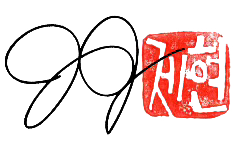If there’s anything I am most proud about in Guardians of Dawn: Zhara, it’s that hardly anyone seems to have taken note of the queerest thing I have ever done in a book: introduce the concept of ungendered third person pronouns casually and seamlessly in a secondary fantasy world.
And yes, that was all part of my agenda.
Because I have an agenda.
I wanted to normalize, but not politicize, the use of ungendered third person pronouns.
Normalization is something I think about a lot when it comes to my ideologies. Perhaps it’s because I have spent so much of my life being askew from normal, but my fantasy is never having to explain myself again. I am always explaining, always living in fear of being misunderstood, of being lost in translation. Normalization would lift that burden of explanation from me. Normalization would have let me get away with not writing an author’s note to introduce the book and the world.
In the issue of The Guardians Gazette I sent out to my paying subscribers about this subject, I wrote:
The Sapir-Whorf hypothesis theorized that the language in which you speak dictates the language in which you think, and I think we discount just how deeply language shapes the way we view the world.
Writing an entire book—now an entire series—this way has indeed shaped the way I view the world. I had not known, until I was conscious of dismantling it in my writing, how automatically I would reach for gendered words over non-gendered ones. Early drafts of Zhara required me to comb through and search for instances where I would gender a character before they gendered themselves—girl, boy, man, woman, etc.—making sure to swap out the gendered shorthand for a more neutral term—figure, youth, person, student. But the longer I’ve been in this fantasy world, the easier it has become to reroute the synapses in my brain to automatically reach for the gender neutral term. Practice does indeed make perfect, and this practice has bled over in my everyday speech as well. The Sapir-Whorf hypothesis in effect.
Because I do look at the world differently now. My own relationship with my gender is different, or perhaps it is the other way around. Perhaps it is my own relationship with my gender that shaped the way I look at the world. I’m not a woman, even though girlhood has shaped who I am as a person. I wanted to write that ungendered assumption I wish people would give me into my book.
So perhaps my desires are political. I wanted normalization, but what is normalization of the not normal if not politicization? I didn’t just want to write the normalization of a non-assumption of gender; I want to normalize the way other cultures formed language—and by extension, thought—as well. Language communicates so much more than the mere words being spoken or read. Language communications culture. It signals to those who understand.
And I wanted people to understand me.
All of me.






This was one of my favourite things in Zhara, and I thought it was really exciting to see that we'd both done this independently. Unlike you, I ended up not doing an author's note for Dragonfall and thinking people would understand why I did both that and the way the narrative positions were braided to avoid third person pronouns for my nonbinary protagonist. I am secretly amused (if slightly exasperated) when reviewers confidently call Arcady she or he throughout, seemingly not noticing they are overlaying their assumptions onto the same words on the page. I also have people capitalise the They/Them for strangers above them in status, and swap once they've shared their pronouns with hand gestures.
However, I often wonder if I was...overly optimistic to think most people would step back and consider why I made these choices through a queer lens. There's a fair amount of grumpiness for the narrative position blend, the capitalised honorific, and the default they. For awhile I worried I'd overcomplicated things or been either too clever or not clever enough. Eventually I decided that no, this was important to me as a nonbinary creator, and the grumpy people can go kick rocks.
I am still currently debating whether I should add an author's note to the paperback. The lecturer in me that taught Barthes and Genette bristles a bit or doesn't want to feel like I have to explain myself, but also in the age of social media and hyper-connection, it seems harder than ever for the author to be dead or somewhere else. My current compromise is there's an upcoming paperback edition with a Q&A in the back and I snuck it in there.
I hadn't heard of the The Sapir-Whorf hypothesis specifically before but it makes complete sense. I have also found myself not as obviously gendering strangers in my mind, subtly. And by weaving this idea seamlessly into our art, we are asking people to challenge assumptions. Others might start to think about their language choices, or broaden empathy. It is definitely political. I, too, yearn for understanding. But I understood you in Zhara, and I wish I'd been able to read it when I was 15 instead of 35.